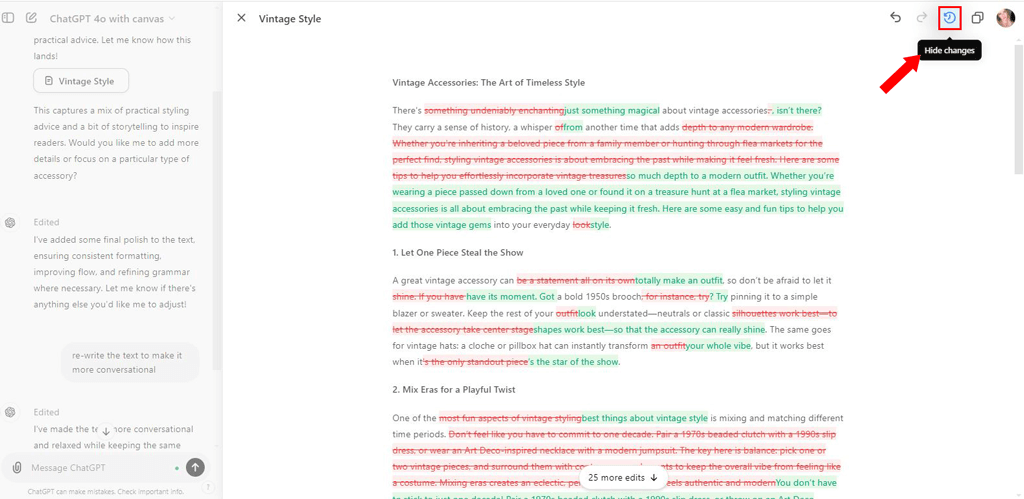Claude Steps Into Chrome: Anthropic Joins the
Anthropic has launched a research preview of its Claude...
OpenAI has introduced a tracked changes feature to Canvas, allowing users to see exactly what edits have been made to their ChatGPT responses.
This update addresses a key user request since Canvas launched in early October, offering visual feedback on edits for both text and code.
While this is a significant improvement, ChatGPT still has ground to cover compared to competitor tools like Anthropic’s Claude, which offers more integrated code editing features through its AI Artifacts.

Key Points:
Key Quotes:
The new tracked changes feature in ChatGPT’s Canvas brings it closer to being a fully functional editing tool, improving user experience by making AI-generated edits more transparent.
However, the comparison with Claude’s Artifacts highlights that while OpenAI is making strides, there are still gaps to fill in terms of integration and real-time code testing.
As more platforms develop similar tools, the competition between AI chat platforms will likely intensify, potentially shaping the future of user interactions in coding, content creation, and other fields.
Source: https://venturebeat.com/ai/chatgpts-canvas-now-shows-tracked-changes/